#compartmentalize
Explore tagged Tumblr posts
Text
Just knowing that there is a 100% chance of a book/movie/song/any that exists out there that if I consumed it would fundamentally and in an instant change who I am and how I see myself in the world and I will never know because it's in a language I don't speak sometimes keeps me up at night
#mine#wow i should just consume everything just in case huh#wait#this makes it seem like i want to fundamentally change who i am and how i know myself. huh.#what an interesting revelation to have in the Tumblr tags#anyway#compartmentalize#omg i just realized that word has compartment AND mental in it and im not even high!#wow the things you learn in the tumblr tags
141 notes
·
View notes
Text
My mother threatens me all the time. She holds money, home, food, and education all as a consequence of what she deems to be correct behaviour. And I see her face. She enjoys being in a position of power, having all the power, and I am always powerless. Nobody believes me. "Compartmentalize," they say, as if I can put all the hurt and pain into a perfect little box. "She's struggling and going through a hard time," they say, as if her pain justifies mine. "Stop being such a brat," they say, as I scream and scream and scream in a hundred different ways.
#heartache#spilled ink#spilled thoughts#mental health#mental illness#spilled words#tw abuse#emotional abuse#parental abuse#female abusers#toxic parents#childhood trauma#power#powerless#threats#don't understand#alone#compartmentalize#justification#bratty#box#pain#scream#scream into the void
13 notes
·
View notes
Text
I don't listen to music or podcasts or anything when I go for a walk. I just raw dog it, all alone with my thoughts.
9 notes
·
View notes
Text
Compartmentalize, Compartmentalize: A healthier approach to life
Are there things you try to practice daily to live a more sustainable lifestyle? There will be many out there who will disagree with the advice I’m about to give. But, it’s my lived experience and what I have learned through some very hard lessons. In particular, I’ve learned these lessons this past year. Many will argue you need a good work/life balance. That is not a concept I completely…

View On WordPress
2 notes
·
View notes
Quote
The decision to use a pen name was nothing more than a desire to compartmentalise my life.
Ashwin Sanghi
4 notes
·
View notes
Text
The midjourney stuff just reminds of when we were trying to find a new platform to host the ao3 donation form, and companies kept trying to tell me about all their "ai" features that would track donor engagement, and figure out the optimal pattern to email individual donors asking for follow up donations, and all the ways they suggest we manipulate people into staying on our websites. It was a great way to filter out who either wasn't listening to us when we described our ethics and donor base, or just didn't believe us.
Now granted ao3 is a unique case based on a) the amount of page views we get in any given time period and b) the fact that most donors absolutely do Not want to be identified as such anywhere, (the default "list of recent donors" module got nuked Immediately) but it surprised me some that the concept of "donors who value their privacy and would be furious at even the whiff of AI" is unique. Some of us really are just existing in different worlds.
#I just started dropping '2.5 Billion page views a month'#into conversations as early as possible bc they would Not believe me otherwise#it was right up there with having to say 'csam attacks' to get them to take my compartmentalization of information concerns seriously#turns out those are the magic words#otw#op
55K notes
·
View notes
Text

"I often don't say things out loud, even when I should. I contain and compartmentalize to a disturbing degree: in my belly-basement are hundreds of bottles of rage, despair, fear, but you'd never guess from looking at me." -Gone Girl by Gillian Flynn
#melancholic-bookaholic#quote#book#book quote#quotes#book quotes#author#fiction#novel#gone girl#gillian flynn#gone girl by gillian flynn#suspense#mystery#thriller#despair#fear#rage#compartmentalize#contain#speak
0 notes
Text
The Plight of Single Friends: Navigating the Shift in Dynamics When Women Get Married
The journey from singlehood to marriage is a significant milestone in a woman’s life. As friends transition into married life, it’s natural for priorities and dynamics to shift. However, the often-unspoken reality is that some women who get married tend to be so engrossed in their newfound roles and responsibilities that they inadvertently overlook the needs and feelings of their single…
#compartmentalize#Friendship#seasonal friends#The Plight of Single Friends: Navigating the Shift in Dynamics When Women Get Married
0 notes
Text

That’s the problem with enemies-to-lovers, sometimes the nightmares are about you
#ughh these guys make me sick they love each other but they've also traumatized each other to hell and back ugug omfg#Especially my boi OP.. Megs can compartmentalize p well but I feel like OP would have a really hard time with it oof#megop#megatron#optimus prime#transformers#maccadam#megatron x optimus prime
4K notes
·
View notes
Text
this whole oceangate submarine fiasco has actually led to a lot of interesting talks and debates about the grey area of human empathy vs the inclination to recoil at the bizarre behaviors of the ultra wealthy and how people struggle with both ideas and is actually very interesting to watch play out in different types of people
#like some people are on polar opposite sides where they have no empathy for the passengers and have moved on#while others are in tears over the likely death of these people#well everyone else in the middle is struggling compartmentalizing both at once in their minds#yes for this wondering I do have submarine fever this is the most fascinating thing that’s happened in a long time#oceangate#titanic
36K notes
·
View notes
Text
i got the veilguard art book a couple months ago and decided to do a design study based on the mourn watch visdev during my 2 week winter break. i used my player character as a test dummy


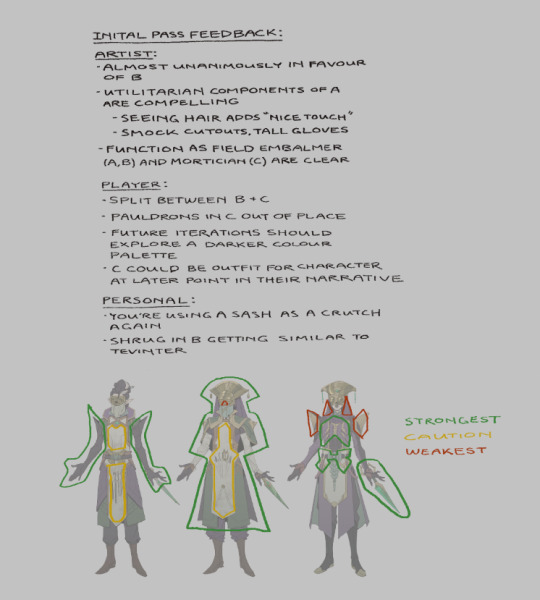



#professional concept art doesn't actually make you write notes this intensively#i just do it so i can compartmentalize my thoughts better#concept art#dragon age#ocs#nico#my art
3K notes
·
View notes
Text
Antiusurpation and the road to disenshittification
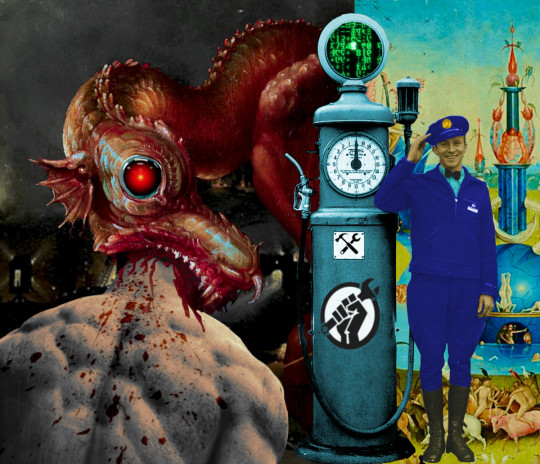
THIS WEEKEND (November 8-10), I'll be in TUCSON, AZ: I'm the GUEST OF HONOR at the TUSCON SCIENCE FICTION CONVENTION.

Nineties kids had a good reason to be excited about the internet's promise of disintermediation: the gatekeepers who controlled our access to culture, politics, and opportunity were crooked as hell, and besides, they sucked.
For a second there, we really did get a lot of disintermediation, which created a big, weird, diverse pluralistic space for all kinds of voices, ideas, identities, hobbies, businesses and movements. Lots of these were either deeply objectionable or really stupid, or both, but there was also so much cool stuff on the old, good internet.
Then, after about ten seconds of sheer joy, we got all-new gatekeepers, who were at least as bad, and even more powerful, than the old ones. The net became Tom Eastman's "Five giant websites, each filled with screenshots of the other four." Culture, politics, finance, news, and especially power have been gathered into the hands of unaccountable, greedy, and often cruel intermediaries.
Oh, also, we had an election.
This isn't an election post. I have many thoughts about the election, but they're still these big, unformed blobs of anger, fear and sorrow. Experience teaches me that the only way to get past this is to just let all that bad stuff sit for a while and offgas its most noxious compounds, so that I can handle it safely and figure out what to do with it.
While I wait that out, I'm just getting the job done. Chop wood, carry water. I've got a book to write, Enshittification, for Farar, Straus, Giroux's MCD Books, and it's very nearly done:
https://twitter.com/search?q=from%3Adoctorow+%23dailywords&src=typed_query&f=live
Compartmentalizing my anxieties and plowing that energy into productive work isn't necessarily the healthiest coping strategy, but it's not the worst, either. It's how I wrote nine books during the covid lockdowns.
And sometimes, when you're not staring directly at something, you get past the tunnel vision that makes it impossible to see its edges, fracture lines, and weak points.
So I'm working on the book. It's a book about platforms, because enshittification is a phenomenon that is most visible and toxic on platforms. Platforms are intermediaries, who connect buyers and sellers, creators and audiences, workers and employers, politicians and voters, activists and crowds, as well as families, communities, and would-be romantic partners.
There's a reason we keep reinventing these intermediaries: they're useful. Like, it's technically possible for a writer to also be their own editor, printer, distributor, promoter and sales-force:
https://pluralistic.net/2024/02/19/crad-kilodney-was-an-outlier/#intermediation
But without middlemen, those are the only writers we'll get. The set of all writers who have something to say that I want to read is much larger than the set of all writers who are capable of running their own publishing operation.
The problem isn't middlemen: the problem is powerful middlemen. When an intermediary gets powerful enough to usurp the relationship between the parties on either side of the transaction, everything turns to shit:
https://pluralistic.net/2022/06/12/direct-the-problem-of-middlemen/
A dating service that faces pressure from competition, regulation, interoperability and a committed workforce will try as hard as it can to help you find Your Person. A dating service that buys up all its competitors, cows its workforce, captures its regulators and harnesses IP law to block interoperators will redesign its service so that you keep paying forever, and never find love:
https://www.npr.org/sections/money/2024/02/13/1228749143/the-dating-app-paradox-why-dating-apps-may-be-worse-than-ever
Multiply this a millionfold, in every sector of our complex, high-tech world where we necessarily rely on skilled intermediaries to handle technical aspects of our lives that we can't – or shouldn't – manage ourselves. That world is beholden to predators who screw us and screw us and screw us, jacking up our rents:
https://www.thebignewsletter.com/p/yes-there-are-antitrust-voters-in
Cranking up the price of food:
https://pluralistic.net/2023/10/04/dont-let-your-meat-loaf/#meaty-beaty-big-and-bouncy
And everything else:
https://pluralistic.net/2023/11/06/attention-rents/#consumer-welfare-queens
(Maybe this is a post about the election after all?)
The difference between a helpmeet and a parasite is power. If we want to enjoy the benefits of intermediaries without the risks, we need policies that keep middlemen weak. That's the opposite of the system we have now.
Take interoperability and IP law. Interoperability (basically, plugging new things into existing things) is a really powerful check against powerful middlemen. If you rely on an ad-exchange to fund your newsgathering and they start ripping you off, then an interoperable system that lets you use a different exchange will not only end the rip off – it'll make it less likely to happen in the first place because the ad-tech platform will be afraid of losing your business:
https://www.eff.org/deeplinks/2023/05/save-news-we-must-shatter-ad-tech
Interoperability means that when a printer company gouges you on ink, you can buy cheap third party ink cartridges and escape their grasp forever:
https://www.eff.org/deeplinks/2020/11/ink-stained-wretches-battle-soul-digital-freedom-taking-place-inside-your-printer
Interoperability means that when Amazon rips off audiobook authors to the tune of $100m, those authors can pull their books from Amazon and sell them elsewhere and know that their listeners can move their libraries over to a different app:
https://pluralistic.net/2022/09/07/audible-exclusive/#audiblegate
But interoperability has been in retreat for 40 years, as IP law has expanded to criminalize otherwise normal activities, so that middlemen can use IP rights to protect themselves from their end-users and business customers:
https://locusmag.com/2020/09/cory-doctorow-ip/
That's what I mean when I say that "IP" is "any law that lets a business reach beyond its own walls and control the actions of its customers, competitors and critics."
For example, there's a pernicious law 1998 US law that I write about all the time, Section 1201 of the Digital Millennium Copyright Act, the "anticircumvention law." This is a law that felonizes tampering with copyright locks, even if you are the creator of the undelying work.
So Amazon – the owner of the monopoly audiobook platform Audible – puts a mandatory copyright lock around every audiobook they sell. I, as an author who writes, finances and narrates the audiobook, can't provide you, my customer, with a tool to remove that lock. If I do so, I face criminal sanctions: a five year prison sentence and a $500,000 fine for a first offense:
https://pluralistic.net/2022/07/25/can-you-hear-me-now/#acx-ripoff
In other words: if I let you take my own copyrighted work out of Amazon's app, I commit a felony, with penalties that are far stiffer than the penalties you would face if you were to simply pirate that audiobook. The penalties for you shoplifting the audiobook on CD at a truck-stop are lower than the penalties the author and publisher of the book would face if they simply gave you a tool to de-Amazon the file. Indeed, even if you hijacked the truck that delivered the CDs, you'd probably be looking at a shorter sentence.
This is a law that is purpose-built to encourage intermediaries to usurp the relationship between buyers and sellers, creators and audiences. It's a charter for parasitism and predation.
But as bad as that is, there's another aspect of DMCA 1201 that's even worse: the exemptions process.
You might have read recently about the Copyright Office "freeing the McFlurry" by granting a DMCA 1201 exemption for companies that want to reverse-engineer the error-codes from McDonald's finicky, unreliable frozen custard machines:
https://pluralistic.net/2024/10/28/mcbroken/#my-milkshake-brings-all-the-lawyers-to-the-yard
Under DMCA 1201, the Copyright Office hears petitions for these exemptions every three years. If they judge that anticircumvention law is interfering with some legitimate activity, the statute empowers them to grant an exemption.
When the DMCA passed in 1998 (and when the US Trade Rep pressured other world governments into passing nearly identical laws in the decades that followed), this exemptions process was billed as a "pressure valve" that would prevent abuses of anticircumvention law.
But this was a cynical trick. The way the law is structured, the Copyright Office can only grant "use" exemptions, but not "tools" exemptions. So if you are granted the right to move Audible audiobooks into a third-party app, you are personally required to figure out how to do that. You have to dump the machine code of the Audible app, decompile it, scan it for vulnerabilities, and bootstrap your own jailbreaking program to take Audible wrapper off the file.
No one is allowed to help you with this. You aren't allowed to discuss any of this publicly, or share a tool that you make with anyone else. Doing any of this is a potential felony.
In other words, DMCA 1201 gives intermediaries power over you, but bans you from asking an intermediary to help you escape another abusive middleman.
This is the exact opposite of how intermediary law should work. We should have rules that ban intermediaries from exercising undue power over the parties they serve, and we should have rules empowering intermediaries to erode the advantage of powerful intermediaries.
The fact that the Copyright Office grants you an exemption to anticircumvention law means nothing unless you can delegate that right to an intermediary who can exercise it on your behalf.
A world without publishing intermediaries is one in which the only writers who thrive are the ones capable of being publishers, too, and that's a tiny fraction of all the writers with something to say.
A world without interoperability intermediaries is one in which the only platform users who thrive are also skilled reverse-engineering ninja hackers – and that's an infinitesimal fraction of the platform users who would benefit from interoperabilty.
Let this be your north star in evaluating platform regulation proposals. Platform regulation should weaken intermediaries' powers over their users, and strengthen their power over other middlemen.
Put in this light, it's easy to see why the ill-informed calls to abolish Section 230 of the Communications Decency Act (which makes platform users, not platforms, responsible for most unlawful speech) are so misguided:
https://www.techdirt.com/2020/06/23/hello-youve-been-referred-here-because-youre-wrong-about-section-230-communications-decency-act/
If we require platforms to surveil all user speech and block anything that might violate any law, we give the largest, most powerful platforms a permanent advantage over smaller, better platforms, run by co-ops, hobbyists, nonprofits local governments, and startups. The big platforms have the capital to rig up massive, automated surveillance and censorship systems, and the only alternatives that can spring up have to be just as big and powerful as the Big Tech platforms we're so desperate to escape:
https://pluralistic.net/2024/03/23/evacuate-the-platforms/#let-the-platforms-burn
This is especially grave given the current political current, where fascist politicians are threatening platforms with brutal punishments for failing to censor disfavored political views.
Anyone who tells you that "it's only censorship when the government does it" is badly confused. It's only a First Amendment violation when the government does it, sure – but censorship has always relied on intermediaries. From the Inquisition to the Comics Code, government censors were only able to do their jobs because powerful middlemen, fearing state punishments, blocked anything that might cross the line, censoring far beyond the material actually prohibited by the law:
https://pluralistic.net/2024/02/22/self-censorship/#hugos
We live in a world of powerful, corrupt middlemen. From payments to real-estate, from job-search to romance, there's a legion of parasites masquerading as helpmeets, burying their greedy mouthparts into our tender flesh:
https://www.capitalisnt.com/episodes/visas-hidden-tax-on-americans
But intermediaries aren't the problem. You shouldn't have to stand up your own payment processor, or learn the ins and outs of real-estate law, or start your own single's bar. The problem is power, not intermediation.
As we set out to build a new, good internet (with a lot less help from the US government than seemed likely as recently as last week), let's remember that lesson: the point isn't disintermediation, it's weak intermediation.

If you'd like an essay-formatted version of this post to read or share, here's a link to it on pluralistic.net, my surveillance-free, ad-free, tracker-free blog:
https://pluralistic.net/2024/11/07/usurpers-helpmeets/#disreintermediation

Image: Cryteria (modified) https://commons.wikimedia.org/wiki/File:HAL9000.svg
CC BY 3.0 https://creativecommons.org/licenses/by/3.0/deed.en (Image: Cryteria, CC BY 3.0, modified)
#pluralistic#comcom#competitive compatibility#interoperability#interop#adversarial interoperability#intermediaries#enshittification#posting through it#compartmentalization#farrar straus giroux#intermediary liability#intermediary empowerment#delegation#delegatability#dmca 1201#1201#digital millennium copyright act#norway#article 6#eucd#european union copyright act#eucd article 6#eu#usurpers#crad kilodney#fiduciaries#disintermediation#dark corners#self-censorship
575 notes
·
View notes
Text

something like tim convinces himself that robin has to be a Boy™ and then steph becomes robin and shatters that conviction and all his repressed gender feelings come spilling out, but actually letting go of that conviction isn’t all that easy
if there's no homoerotic tension between you and the manifestation of your alter-ego that you’ve constructed in your mind, do you really have identity issues?
closeups + refs (leyendecker) + bonus:



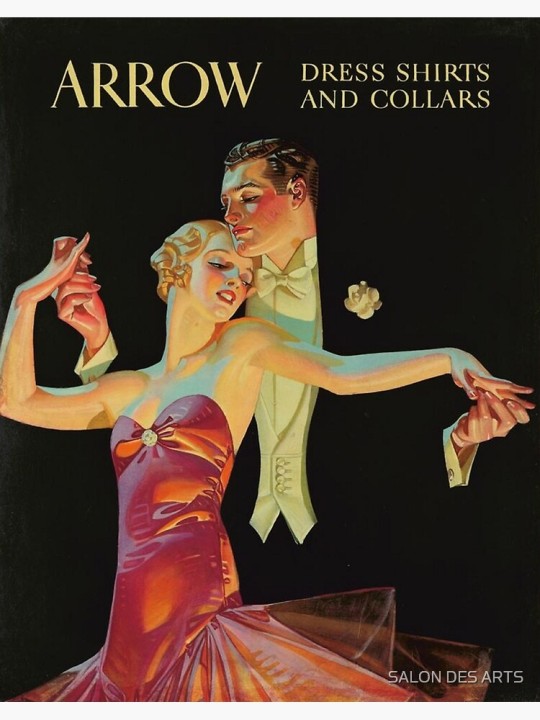


#sart#dc#probably gets resolved by tim watching steph in action and having not-conversations about his function as a vigilante w bruce and dick#im not sure how to tag this ? bc to me it’s somewhere between a metaphor and tim taking his compartmentalization too far and an actual ship#but ive also been affectionately referring to this as timcest#so take that as you will#tim really has me reaching unparalleled levels of blorbo brain rot#i was in the dairy aisle like man i want to draw tim in a dress but I’ve also never drawn tim in a suit#and things spiraled 😌
2K notes
·
View notes
Text
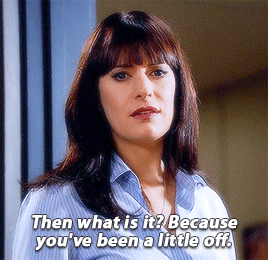
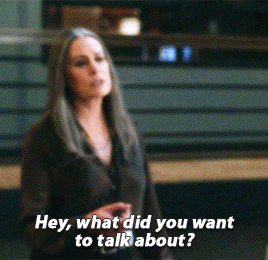
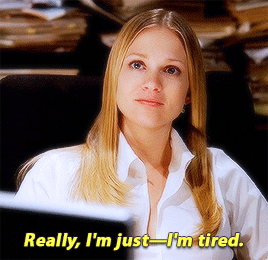
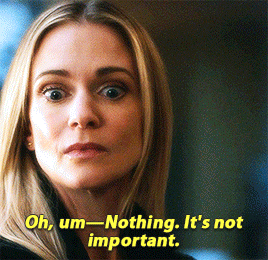
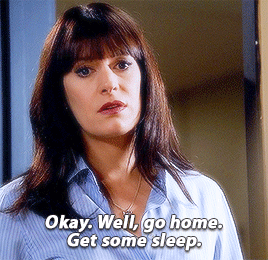
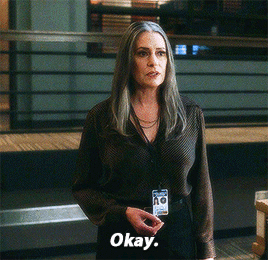


3.18 The Crossing | 17.04 Kingdom of the Blind
#criminal minds#criminalmindsedit#cmverse#cmverseedit#criminal minds evolution#cmevolutionedit#emily prentiss#emilyprentissedit#jennifer jareau#jenniferjareauedit#jemilyedit#mine#edit#*#parallel*#i love parallels#otp: it is really good to see you#emily pry for once in your goddamn life!!!!!!!#(i swear i try to not 2012 glowify every gifset but it always looks better to me i'm so into it lately!! i am just Over sharp apparently)#something about emily giving jj distance bc it's what emily needs to compartmentalize#and then the literal next episode having a breakdown because rossi offered her the smallest push#emily now it's your turn!! pay it forward!! get her to talk!
721 notes
·
View notes
Text
When people don't cheer at your good news
A long time ago, I was referred to as a cheerleader. A morale booster. A person who brought levity to many situations. I laugh a lot. Sometimes, that makes people feel good. Sometimes, my laughter makes some people paranoid. It’s not like my laugh is maniacal. It’s just that laughter can actually make some people uncomfortable. Anyway, I like to cheer on people. I like jokes in a meeting to pep…

View On WordPress
0 notes
Text
It will never not be funny to me that in Thousand Autumns, Shen Qiao is just the one normal, reasonable person while everyone else is living in a classic Wuxia drama
Basically every book conversation is just this:
Yu Ai: I had to poison you because you disagreed with everything I said, so I deemed you an incapable and naive sect leader! You would bring Mt. Xuandu to ruin!
Shen Qiao: I'm sorry, "had" to? We could've talked things out, y'know, like how normal people settle disagreements, but no, poison was clearly the only option left. You "had" to poison me. Right.
---
Yan Wushi: You and I are diametrically opposed. You are weak and undeserving of my attention. You fail to live up to my expectations and bring shame upon your master's legacy. Why would I need a friend like you so presume?
Shen Qiao: I didn't say you needed one, just that that's what I call you. You literally followed me around for months, ate with me, sparred with me, saved my life, and opened my eyes to the outside world... What on earth did you want me to call you that wouldn't be rude?
(Honestly knowing YWS's melodramatic ass, SQ probably just went through a mental list of statuses you could give to someone based on their proximity, realized that YWS is very much an outlier and also very much particular about his titles and general importance, picked "friend" as the safest option.)
---
Chen Gong: You look down on me because I'm from poor origins and never had the background or pedigree that you did so you disdain my methods!
Shen Qiao: ... You are holding. A child. Hostage. Literally every time I've met you you're doing something that doesn't agree with my morals and endangering human life. I genuinely do not care about your background, you just happen to be doing something I don't agree with and also tends to end up becoming my problem.
(No really, CG has like such a massive unrequited hatred for SQ while SQ is just lamenting that they somehow always end up meeting at the worst times in the worst places)
---
Half of the characters: Look how lowly you've become! From sect leader to boy toy! Everyone point and laugh!
Shen Qiao: Harsh but true, I suppose. Oh well, I should get back to what I'm doing.
#thousand autumns#qian qiu#shen qiao#the plot was background noise for him up until it became an actual problem#compartmentalizing king#he truly won the idgaf war#everyone's monologuing and he's just slowly inching around the sides#to get past them#and get to the next part of this Journey That's Taken A Suprising Dramatic Turn#he's all business trying to get from point a to point b#sq: i hear you i hear you but consider. it was never that deep for me
263 notes
·
View notes